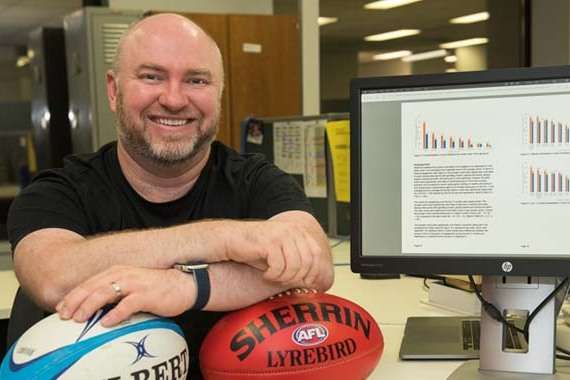'Pocket Money' punters as youth study reveals emerging gambling gateways
Description
The NSW Youth Gambling Study 2020 by CQUniversity surveyed young people in NSW aged 12 to 17, to understand their legal, unregulated and illegal gambling activities, environmental and social factors of their gambling, and emerging trends in problematic gambling and gambling-related harms. This project was commissioned by the NSW Government's Responsible Gambling Fund, with support from the NSW Office of Responsible Gambling.
Funders
NSW Responsible Gambling Fund;
NSW Office of Responsible Gambling.
Impact
Increased understanding of youth gambling trends and pathways in NSW, to reduce gambling-related harms through research-informed policy.
Professor Nerilee Hing, Dr Alex Russell, Dr Daniel King, Professor Matthew Rockloff, Professor Matthew Browne, Nancy Greer and Dr Philip Newall
A CQUniversity study shows technology is transforming how children participate in legal and illegal gambling activities, as opportunities for underage gambling explode.
Australian children as young as 11 are gambling for money, and more than a third are playing video games and apps that simulate gambling activities.
Those are some of the findings from CQUniversity's Experimental Gambling Research Laboratory, in a ground-breaking exploration of youth gambling habits in the increasingly digital and diverse gambling sector.
The NSW Youth Gambling Study 2020 is based on surveys and focus groups with young people in NSW aged 12 to 17, and was commissioned by the NSW Government's Responsible Gambling Fund, with support from the NSW Office of Responsible Gambling.
Although underage gambling is illegal within the regulated industry, about 30 per cent of the young people surveyed had bet for money in the past year.
CQUniversity Gambling Studies Research Professor Nerilee Hing led the project and says the prevalence of online and digital gambling was concerning.
'About 40 per cent of NSW children aged 12 to 17 are playing video games and apps that very much look and feel like traditional gambling,' Professor Hing explains.
'Things like pokies apps, and lucky-dip 'loot boxes' in gaming, have similar addictive qualities as traditional gambling.
'And we know gamers who buy loot boxes are more likely to gamble, including with some of the in-game items that they win in loot boxes.'
Study co-investigator, Dr Alex Russell, says online options were opening new gambling gateways to young people.
'When going to a pub or club, underage people should have their age verified on each visit. But with online gambling, once you have an account, you can gamble all you like without further age checks.
'Most parents understand the addictive issues around traditional forms of gambling, but they don't understand how loot boxes work for instance, even though they're often providing the credit card that kids are using to buy them.'
Professor Hing says, 'This study paves the way to explain to parents and young people what a dangerous gambling product looks like, and for instance how buying loot boxes is something a player can do over and over at a fast pace, with no limit on the spend, much like a pokie machine.'
The study showed most respondents who gambled were using pocket money for their betting, and of the respondents 3.7 per cent were classified as at-risk or problem gamblers.
The most popular gambling activity was informal private betting, such as betting against each other on sporting matches. The most popular traditional gambling activities were bingo, keno, scratchies and lottery tickets.
Concerningly, a third of children who had gambled online had been able to set up an account in their own name.
Professor Hing says the study also showed that parents were the biggest facilitators of youth gambling, highlighting the need for parent education initiatives.
'Parents are often providing money to gamble, or access to online betting accounts, for instance, and also normalising gambling through their own gambling activities,' Prof Hing explains.
'So parents also need to be aware of more harmful forms of gambling and gambling-like products, like social casino games, so they can identify and manage the risks.'
Nearly 54 per cent of young people gambling with money were doing so with a parent or a guardian, and 20 per cent with grandparents. About 58 per cent of those who gambled came from homes where adults did so too.
Advertising was also a big influence, with nearly half of gambling respondents saying they frequently noticed gambling ads on TV during sports broadcasts.
Professor Hing says understanding emerging gambling trends was vital to reducing gambling harms.
'With technology, young people have so many options to gamble already in their hands – through research like the NSW Youth Gambling Study, we're putting the latest trends and risks for young people in the hands of policy-makers, so their response can be timely and effective.'
Connect with CQUniversity
At CQUniversity we know the value of our connections locally and around the world. Our partnerships help us create opportunities, deliver solutions and change lives. From time to time, we share our Connections Count update where we share our highlights, including research impact stories like the ones below. Sign up to become one of our valued connections.

